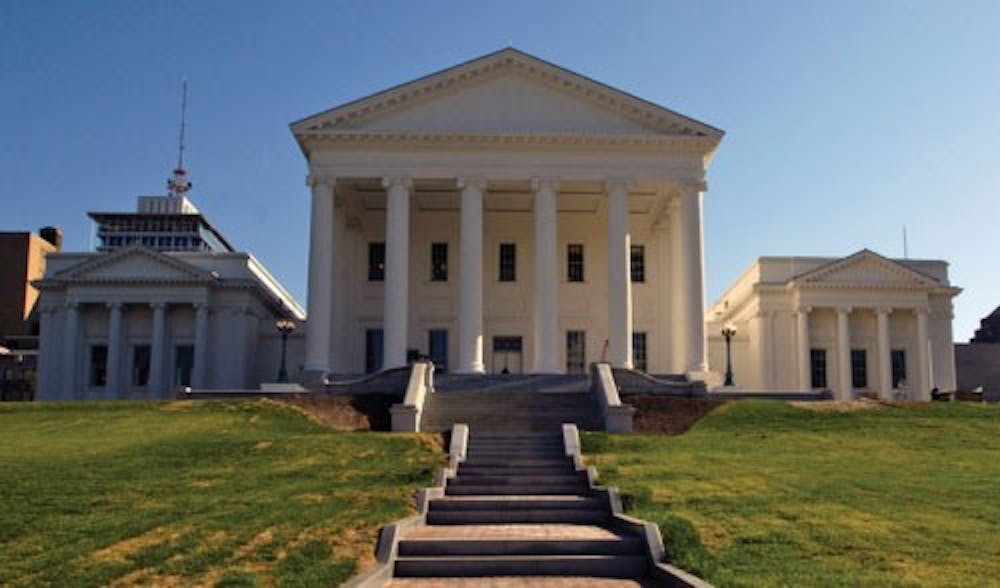The Virginia House of Delegates recommended $52.7 million in additional funding for in-state financial aid for higher education in the state of Virginia Tuesday. The state Senate previously approved an additional $48.2 million, originally proposed by Virginia Gov. Terry McAuliffe.
The news comes shortly after the University’s Feb. 19 announcement of a tuition increase of 3 percent for the 2016-17 academic year.
The House budget’s recommended increase of $4.5 million specifically for financial aid brings the recommended funding for Virginia's higher education system to a total of $237 million. The budget also limits tuition increases to 3 percent for the next two years.
Tony Maggio, a legislative fiscal analyst for the House Appropriations Committee, said funding would be given to the State Council of Higher Education, stipulating allocation will be determined by recommendations of the Higher Education Joint Subcommittee, chaired by Del. Kirk Cox (R-Colonial Heights).
“One of the goals of that joint subcommittee is reform, in part because the methodology that we currently use is close to 40 years old,” Maggio said. “It was adopted in the 1980s, and the way things operate in higher education have changed.”
Maggio said increased financial support for institutions of higher education will enable them to keep tuition increases moderate.
“If you give more support to the institution, that gives them the ability to not increase the charges to students at high rates,” Maggio said. “The general fund that was recommended to the institutions was tied to the expectation that they’ll keep their increases to no more than three percent for each year.”
Third-year Commerce student Santiago Naranjo, co-coordinating chair of United For Undergraduate Socioeconomic Diversity, said tuition hikes are often caused by budget cuts at the state level.
“As state funding has decreased, the University has had to increase tuition revenue that it generated through its students,” Naranjo said. “[With] the governor hopefully mitigating that situation by injecting new funds into financial aid for undergraduates, my hope and expectation is that tuition hikes will no longer be necessary.”
Daniel Judge, fourth-year college student and outgoing Board of Visitors student member, said this expectation was shared by the BOV.
“At the Board meeting it was discussed that if state funding is increased more than expected, the University will adjust the student tuition accordingly,” Judge said in an email statement.
Naranjo said increased funding for higher education is beneficial in achieving one of UFUSED’s main goals, which is making higher education more accessible for both current and prospective students.
“There’s recognition that financial aid needs to be improved in order to help not just low-income students, but especially low-income students, [to] be able to educate themselves in the hopes of breaking intergenerational cycles of poverty,” Naranjo said. “It provides some sense of relief knowing that there is attention being paid to this sort of an issue.”
In terms of the future of these budget recommendations, Maggio said he expects a version of the budget which reconciles both the Senate and House proposals to be finished in early March.
“The new money, the $4.5 million, is earmarked for the next fiscal year,” Maggio said. “It’s not fast moving, but that deliberation is necessary.”
The final version of the budget will become effective July 1, pending approval by McAuliffe. The Higher Education Joint Subcommittee’s recommendations will be taken into account this December, prior to the General Assembly’s next session.







